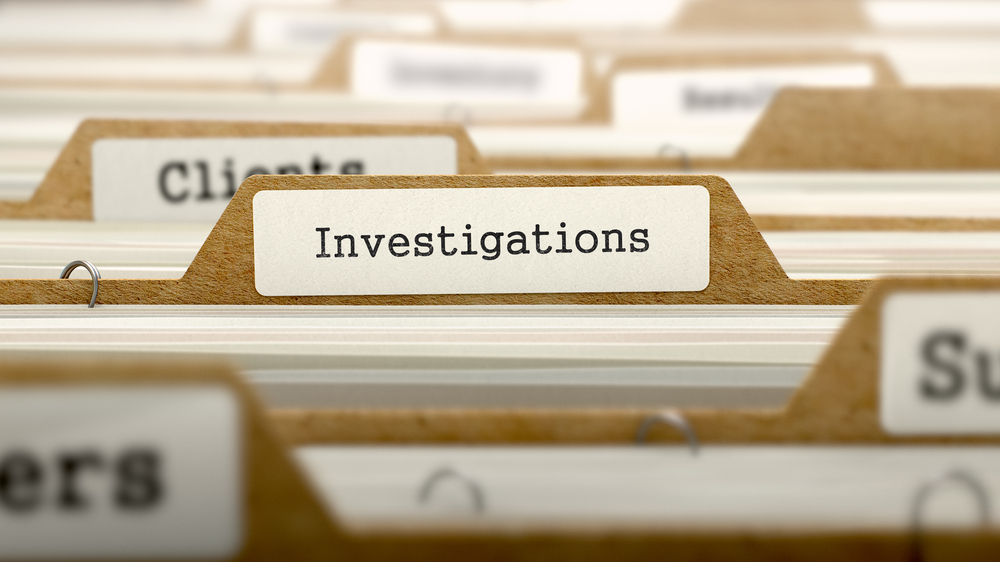3 key steps to take to prep for the rise in antitrust investigations

Image from Shutterstock.
From technology behemoths buying up dynamic startups to market-leading utility companies joining forces, there is a clear trend of market consolidation in the U.S. In the quest to curb the monopolization of industries, President Joe Biden signed an executive order in July promoting competition in the economy—which signals an upcoming increase in antitrust investigations for the legal industry.
The executive order lays out 72 initiatives to tackle the most pertinent issues, with a “whole-of-government” antitrust policy committing the federal government to aggressive enforcement of the antitrust laws. This includes a call for the leading antitrust agencies, the U.S. Department of Justice and the Federal Trade Commission, “to enforce the antitrust laws vigorously” and importantly, recognize that the “law allows them to challenge prior bad mergers that past administrations did not previously challenge.”

In particular, the executive order directs these organizations to focus their enforcement efforts on particular industries: labor, agriculture, health care and technology (although these are far from the only industries under fire). And with the news that the DOJ is suing to stop the American Airlines/JetBlue alliance, followed by 32 state attorney generals urging the DOJ to take further action, it looks like the litigation wave is already starting.
The legal industry and in-house legal teams will need to be poised to address this expected deluge of antitrust investigations. The impact of these changes will not be truly understood for months or even years, but it is clear that there will be an increase in the breadth and scope of their investigations of mergers, acquisitions and alleged anti-competitive practices—and the government will likely be more aggressive in bringing enforcement actions. This increase in government attention may also yield an increase in follow-on private litigation.
 Kent Radford.
Kent Radford.
Why spend all this time and money to prepare for investigations that may not materialize for your company? With penalties that include millions of dollars in fines, billions spent in mergers that may be unwound or prohibited from moving forward and even potential jail time, the consequences are too high not to prepare now. Furthermore, because corporations have a responsibility to shareholders to enhance business performance, when an opportunity to purchase or merge with a company emerges, it is important to act quickly. Corporations can’t afford to wait around hoping that the next administration might enact different policies—which might not be the case anyway.
So what does this legislation mean for law firms and in-house legal teams? They need to turn a critical eye to their processes and technologies to ensure an efficient, integrated response with minimal business interruption, and set up teams to handle potential follow-on litigation.
In conducting this review of processes, there are a few key areas to look at to accelerate speed to evidence and ensure a streamlined response for investigations:
- • Eliminate delays. Prior to any investigation, implement a documented process for how legal teams and outside counsel can quickly and accurately identify the relevant custodians, collect documents, and begin working with them without delay. This not only helps minimize the business interruption encountered by the relevant custodians, it also ensures team members don’t waste time figuring out what to do when an investigation begins. Being proactive and having a plan for investigations is key to eliminating delays. If you have data sources in your organization that have short retention policies on them (for example, Slack messages), it’s important to know what those sources are so that you can place them on hold quickly if and when you need to. Another place to speed up review is simply by making sure you can access the data in your review platform as soon as possible. Review your workflows to minimize data transfers, which will slow down review.
- • Let AI do the heavy lifting. With 2.5 quintillion bytes of data created every day, simply reviewing every document collected is not only cost-prohibitive but also likely means missing deadlines based on the sheer volume for review. This is on top of continued evidence that keywords are not an effective way to find documents—with some studies suggesting 78% of relevant documents are “left on the table” when using Boolean searches alone. In-house teams need an accurate and efficient way to review documents and respond to government investigations that balances speed and cost. In-house teams should explore whether the use of artificial intelligence or technology-assisted review will get the most context the most quickly. When facing large data sets in investigations, you no longer need to have eyes on every document. AI is a great way to accelerate your review, and defensible workflows include steps to validate this approach.
- • Ensure collaboration. Whether working solely with in-house teams or in collaboration with outside counsel, it is critical that team members are all kept in the loop and coordinating across the investigation. This includes the ability to track work, share key documents, and collaboratively review and analyze employee and third-party interviews to ensure legal teams are prepared to engage with government agencies and follow-on litigation. Set up standard workflows that address internal only investigations and those involving outside counsel in advance of any investigations starting. These plans should include the frequency of communication, how documents will be shared and worked on (such as through a secure FTP, cloud-based data storage or other technology) as well as how tasks will be tracked and more.
Regardless of whether this expected deluge comes to fruition, it’s important for companies and legal teams to be prepared to prevent costly, lengthy business disruptions. If your company works in one of the target industries in the executive order, there are four things your team can do now to get prepared for possible regulatory action:
- 1. Identify where relevant data lives and the retention practices: for example, by auditing what data your organization generates in what applications, interviews with IT on how such data is stored and investigating whether all data generated lives on corporate owned devices or if personal devices need to be taken into consideration when issuing a legal hold.
- 2. Create a repeatable process or checklist for investigations with buy-in from all impacted divisions of the company so everyone knows what is expected if an investigation materializes—and you’re able to easily recreate your process should the defensibility of it ever come into question (this is important even in early days of an investigation).
- 3. Prepare documentation of your antitrust compliance program, including documentation regarding the design and implementation of your program; how your organization monitors and audits employee conduct; and any documentation illustrating a company culture of antitrust compliance (such as incentives, disciplinary actions taken and evidence of remediation) in preparation for interactions with federal regulators.
- 4. Evaluate your existing noncompete agreements to determine whether to revise them or prepare arguments regarding their reasonableness in light of likely upcoming regulations to curtail the unfair use of noncompete clauses and other clauses or agreements that may unfairly limit worker mobility.
By doing this legwork now, if and when a regulatory investigation comes your way, your legal team is able to jump in without delay. By not wasting time establishing workflows and scrambling to find technology capabilities that will simplify processes, your team will be a better partner to your internal clients and key stakeholders.
Kent Radford is a co-founder of CS Disco Inc., which partners with law firms and corporate legal departments to improve outcomes by building and using technology to strengthen the rule of law. He was previously a presiding partner at Camara & Sibley, practiced at Vinson & Elkins, and helped found the Houston offices of Hogan Lovells and Pillsbury Winthrop Shaw Pittman. He is a registered member of the Cherokee Nation and expert on central Texas barbecue.
Mind Your Business is a series of columns written by lawyers, legal professionals and others within the legal industry. The purpose of these columns is to offer practical guidance for attorneys on how to run their practices, provide information about the latest trends in legal technology and how it can help lawyers work more efficiently, and strategies for building a thriving business.
Interested in contributing a column? Send a query to [email protected].
This column reflects the opinions of the author and not necessarily the views of the ABA Journal—or the American Bar Association.



